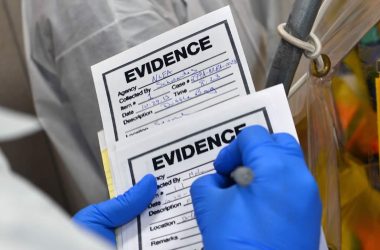ROCKFORD —(ENEWSPF)–November 18, 2014. A Chicago resident is now facing three federal bank robbery charges, federal officials announced today. ADAM A. SANBORN, 29, of Chicago and formerly of Milton, Florida, was originally arrested on Sept. 10, 2014, and charged with the Aug. 23, 2014, robbery of the Byron Bank in Davis Junction, Illinois. The federal grand jury in Rockford returned an indictment against Sanborn on Sept. 23, 2014, charging him with that robbery.
Today, Zachary T. Fardon, United States Attorney for the Northern District of Illinois, and Robert J. Holley, Special Agent-in-Charge of the Chicago Office of the Federal Bureau of Investigation, announced that the federal grand jury in Rockford returned a superseding indictment charging Sanborn with the robbery of the Byron Bank as well as the robbery of the First Community Bank and Trust in Peotone, Illinois, on Feb. 24, 2014, and the robbery of the Heartland Bank in Huntley, Illinois, on April 25, 2014. Sanborn will appear before U.S. Magistrate Judge Iain D. Johnston on Nov. 20, 2014, at 11:00 a.m. and be arraigned on all three charges contained in the superseding indictment. Sanborn has remained in custody since his initial arrest on Sept. 10, 2014.
United States Attorney Fardon praised the teamwork of the FBI and the Ogle County Sheriff’s Office, Huntley Police Department, and the Peotone Police Department in conducting the investigation.
Each bank robbery charge carries a maximum sentence of 20 years in prison and a $250,000 fine. If convicted, the court must impose a reasonable sentence under federal statutes and the advisory United States Sentencing Guidelines.
The government is being represented by Assistant U.S. Attorney John G. McKenzie.
The public is reminded that a superseding indictment contains only charges and is not evidence of guilt. The defendant is presumed innocent and is entitled to a fair trial at which the government will have the burden of proving guilt beyond a reasonable doubt.
Source: justice.gov








